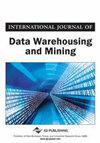高度不完备工业数据建模的工程领域知识框架
IF 0.7
4区 计算机科学
Q4 COMPUTER SCIENCE, SOFTWARE ENGINEERING
International Journal of Data Warehousing and Mining
Pub Date : 2021-10-01
DOI:10.4018/ijdwm.2021100103
引用次数: 1
摘要
工业数据中的缺失值限制了应用。虽然这些不完整的数据包含了足够工程师支持后续开发的信息,但对于算法建立精确模型来说,仍然有太多的缺失值。这是因为没有考虑到工程领域的知识,并且没有完全捕获有价值的信息。因此,本文提出了一种基于工程领域知识的不完全工业数据建模框架。对原始数据集进行了不同尺度的分区和处理。首先,结合层次特征降低缺失率;为了填补识别出来的特殊数据中缺失的值,对样本进行分类,不去除只呈现部分特征的样本,而是充分利用这些特征来建立局部插值模型。然后将样本分成不同的组来传递信息。通过对一系列工业数据的分析,验证了所提方法的可行性。本文章由计算机程序翻译,如有差异,请以英文原文为准。
An Engineering Domain Knowledge-Based Framework for Modelling Highly Incomplete Industrial Data
The missing values in industrial data restrict the applications. Although this incomplete data contains enough information for engineers to support subsequent development, there are still too many missing values for algorithms to establish precise models. This is because the engineering domain knowledge is not considered, and valuable information is not fully captured. Therefore, this article proposes an engineering domain knowledge-based framework for modelling incomplete industrial data. The raw datasets are partitioned and processed at different scales. Firstly, the hierarchical features are combined to decrease the missing ratio. In order to fill the missing values in special data, which is identified for classifying the samples, samples with only part of the features presented are fully utilized instead of being removed to establish local imputation model. Then samples are divided into different groups to transfer the information. A series of industrial data is analyzed for verifying the feasibility of the proposed method.
求助全文
通过发布文献求助,成功后即可免费获取论文全文。
去求助
来源期刊

International Journal of Data Warehousing and Mining
COMPUTER SCIENCE, SOFTWARE ENGINEERING-
CiteScore
2.40
自引率
0.00%
发文量
20
审稿时长
>12 weeks
期刊介绍:
The International Journal of Data Warehousing and Mining (IJDWM) disseminates the latest international research findings in the areas of data management and analyzation. IJDWM provides a forum for state-of-the-art developments and research, as well as current innovative activities focusing on the integration between the fields of data warehousing and data mining. Emphasizing applicability to real world problems, this journal meets the needs of both academic researchers and practicing IT professionals.The journal is devoted to the publications of high quality papers on theoretical developments and practical applications in data warehousing and data mining. Original research papers, state-of-the-art reviews, and technical notes are invited for publications. The journal accepts paper submission of any work relevant to data warehousing and data mining. Special attention will be given to papers focusing on mining of data from data warehouses; integration of databases, data warehousing, and data mining; and holistic approaches to mining and archiving
 求助内容:
求助内容: 应助结果提醒方式:
应助结果提醒方式:


